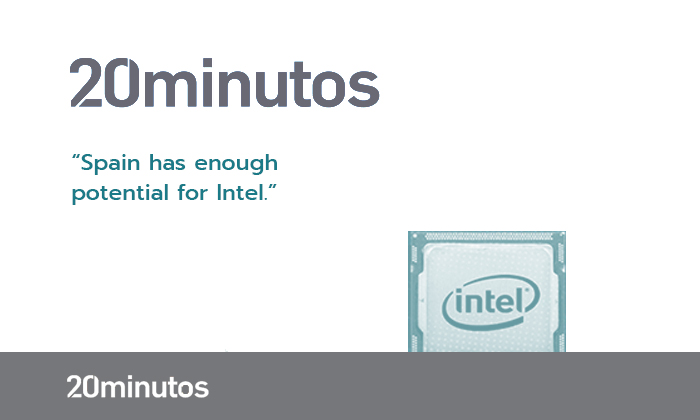Intel is looking to establish itself in Europe. Spain has the perfect structure to achieve this. Could Spain be the territory of choice for setting up new factories?
One of the companies that has officially declared that it wants to establish itself in Europe is Intel. A few weeks ago, the technology company publicly ruled out the possibility of building a factory in the United Kingdom due to Brexit, so now the rest of the European Union countries, including Spain, are chomping at the bit waiting to find out who will be chosen – according to the latest information, they plan to build two new headquarters.
The project is no small matter: the company, the world’s largest seller of integrated circuits, wants to invest 80 billion in the continent over the next decade. So far, Intel’s presence in Europe has been limited to one facility in Ireland.
The aim of the multinational is to alleviate the Old Continent’s dependence on Southeast Asia for semiconductors. At present, only about one out of ten chips marketed is manufactured in Europe. Supposedly the decision will be known by the end of 2021 and for the moment we only know what Intel’s CEO told the BBC a few days ago: that there are 70 locations on the list and that a dozen countries have submitted proposals.
Among all these proposals is, of course, Spain. The city of León is one of those that has offered itself as a destination. However, and unfortunately, our country is not one of the most popular candidates: although Intel keeps quiet and does not reveal anything, Gelsinger has made several visits and has maintained contacts with the highest levels of countries such as Germany, Italy and France, and has even been seen in public with the French president, Emmanuel Macron. It has also transpired that Belgium, Poland and the Netherlands have put themselves forward for election.
However, as pointed out by some media such as El Confidencial , the reason for this silence is not only due to indecision or the search for the best geographical location: this industry, like many others, migrated to Asia at the time for several reasons, including the price of labour, but above all a more lax environmental policy for an activity that involves a very high consumption of water resources.
Creation of the Spanish Semiconductor Industry Association (AISI)
In this context, four Spanish companies have founded the first Semiconductor Industrial Association of Spain. The group is made up of the companies Wiyo (Yocto Technologies) Imasenic, Kdpof and ICMálaga, according to a statement.
The association aims to “cover national and international needs, through innovations 100% designed in Spain”. With this union, the companies aim to achieve the necessary means to “be able to promote the design and evolution of semiconductors at the level of the most recognised countries in this field”.
At the same time, they seek to open up the possibility to other international companies related to the sector – including micro and nanochip factories, as well as companies that are necessary within the ecosystem – to bet on Spain as a technological centre with disruptive options and capabilities.
And what is the reason for all this?
This is probably not the first thing you have read about the so-called ‘chip crisis’. But, in case you are still not clear about the reasons for this situation in the industry, PcComponents explains in summary the keys to this global problem.
Specifically, the health crisis brought a decrease in the production capacity of semiconductor manufacturing plants. “Recall that for several weeks, fabs were shut down and then production was lower than usual,” they say.
At the same time, isolation and the pandemic world led to a change in habits that boosted demand for technology worldwide. “Teleworking and distance learning, mainly, wiped out all available stock and since then demand has always been extraordinarily higher than supply,” they add.




